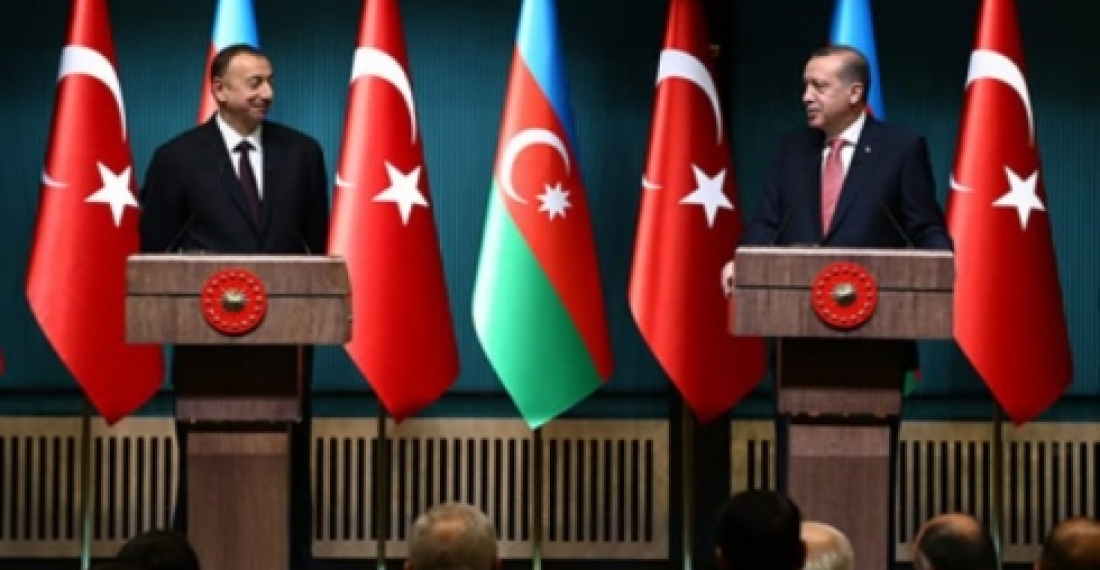"President of Azerbaijan Ilham Aliyev's visit to Turkey was very spectacular and historic. This was a significant visit in form and content not only in terms of the relations between the two countries, also in terms of international relations", Deputy Head of the Presidential Administration of Azerbaijan, Novruz Mammadov told journalists, according to a report by the Azerbaijani news agency APA.
Aliev was in Ankara to attend a meeting of the joint Supreme Strategic Council that was established between the two countries to oversee co-operation between them. The Turkish side has used the meeting to highlight the special importance it attaches to the relations between the two countries.
The Turkish newspaper, Hurriyet Daily News on Saturday (17 January) reported that 2015 will provide more than one occasion for Turkey and neighboring Azerbaijan to show off the strength of their bilateral cooperation, not only in the global political arena but also in the global economic field.
Ankara, which assumed the rotating presidency of the G-20 on Dec. 1, 2014, didn't waste time by using its position to have Baku represented at a G-20 summit as its "guest."
While listing some key joint economic projects during a press conference in Ankara with Azerbaijan's visiting President Ilham Aliyev on Jan. 15, Turkish President Recep Tayyip Erdoğan recalled that Turkey will host a G-20 summit later this year.
"As host of the G-20, we have used our mandate to favor Azerbaijan. Azerbaijan will take part in the G-20 this year as our guest," Erdoğan said. "From preliminary preparations to G-20 negotiations, Azerbaijan will be with us," he added.
Later at the press conference, during which both the guest and the host head of the state made statements but did not field questions, Erdoğan made another striking announcement, as he said he had extended an invitation to Aliyev to attend the ceremony marking the centennial of the Battle of Çanakkale, also known as the Battle of Gallipoli, in Çanakkale province in late April.
A similar invitation was also sent to the President of Armenia but this was immediately declined by the Armenian side. Armenia accuses Turkey of using the centenary of the Gallipoli landings as a way of deflecting attention from the anniversary that Armenians will marking in the same month, commemorating the attrocities against the Armenian people in Anatolia in the final years of the Ottoman Empire.
source: commonspace.eu with APA, TDN and agencies.
photo: President Aliev and President Erdogan at a joint Press Conference in Ankara on 16 January 2015. (picture courtesy of the press Service of the President of Turkey),







